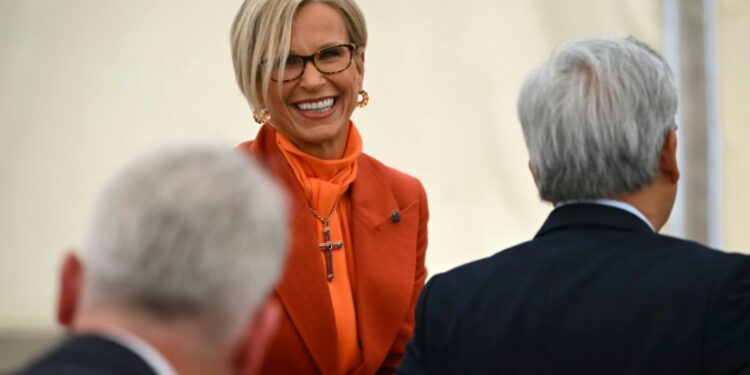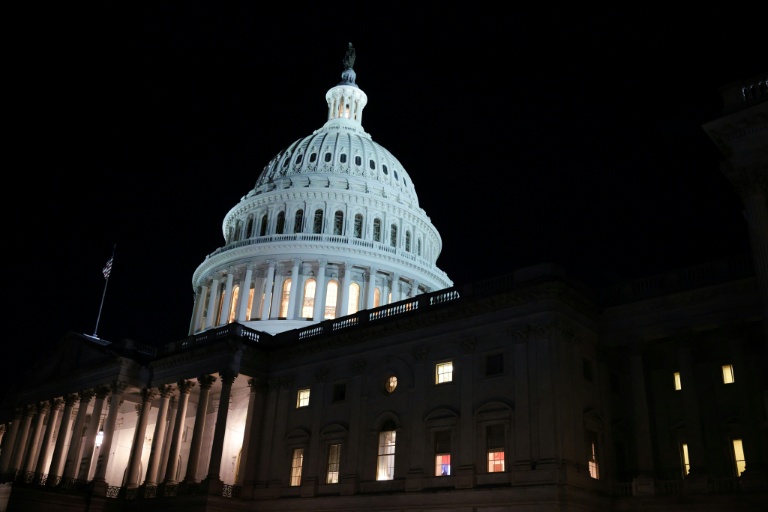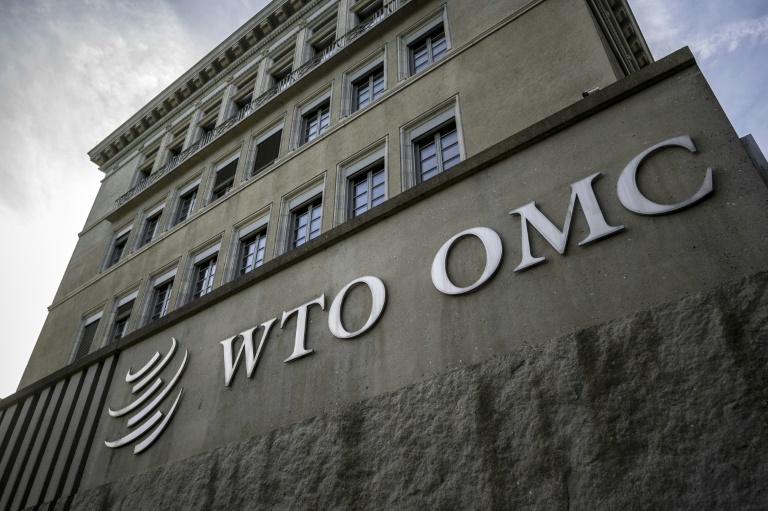London (AFP) – British pharmaceutical giant GSK on Monday announced that longtime chief executive Emma Walmsley will be replaced by its chief commercial officer, Luke Miels, in January, as the company navigates US tariffs on the sector. Miels will take over on January 1 from Walmsley, who will have been at the helm for almost nine years. This change was revealed in an unexpected announcement from GSK.
Earlier this month, GSK disclosed plans to invest $30 billion in the United States over the next five years. This investment was announced shortly before US President Donald Trump indicated that he would impose 100-percent tariffs on all branded pharmaceutical products starting Wednesday, unless companies are building manufacturing plants in the United States. “2026 is a pivotal year for GSK to define its path for the decade ahead, and I believe the right moment for new leadership,” Walmsley stated in the company’s announcement. “Today, GSK is a biopharma innovator, with far stronger momentum and prospects than nine years ago,” she added.
Miels, 50, expressed his enthusiasm about leading a company with “outstanding prospects.” He stated, “As the next CEO, I am privileged to take on this responsibility, with humility and ambition.” Following the news of his appointment, GSK shares climbed 2.4 percent in London morning deals, with analysts attributing the increase to a smooth transition and expectations of improved performance under the new CEO.
– Tariffs test –
In light of their recent announcements to invest substantially in the United States, GSK and its British rival AstraZeneca are hoping for some form of tariff exemption, similar to what the European Union is set to gain due to a trade deal with the world’s largest economy. GSK made its planned US investment announcement during Trump’s recent state visit to the UK. The company, which employs about 15,000 staff in the United States, is set to establish a new biologics factory in Pennsylvania for the development of respiratory and cancer treatments, alongside advancements in artificial intelligence at its five US manufacturing sites.
Walmsley, who also rose through the ranks to become CEO, guided GSK through the challenges of the Covid-19 pandemic and oversaw the separation of its consumer healthcare division. The 56-year-old spun off the unit in 2022, later named Haleon, to focus on GSK’s main pharmaceutical business. This move came after she faced significant pressure from activist shareholders regarding delays in producing Covid vaccines and treatments.
More recently, Walmsley managed GSK’s agreement to pay $2.3 billion to resolve lawsuits alleging that its heartburn drug Zantac caused cancer, despite the company not admitting liability. This development impacted GSK’s annual profit in 2024, but the group is poised for a stronger performance this year, buoyed by soaring sales of cancer medicines.
“Walmsley has been patiently leading a turnaround of the pharmaceutical giant almost ever since she took over in 2017, and she can point to real evidence of progress, including the spin-off of (the) consumer health arm,” remarked AJ Bell investment director Russ Mould. “However, litigation issues over Zantac and setbacks for its vaccine business…have held the business back.”
A former AstraZeneca executive, Miels’s annual base salary as CEO will be £1.375 million ($1.85 million), which is less than Walmsley’s current compensation. However, he stands to earn millions more through yearly and long-term bonuses, as noted in the company’s statement.
© 2024 AFP




















